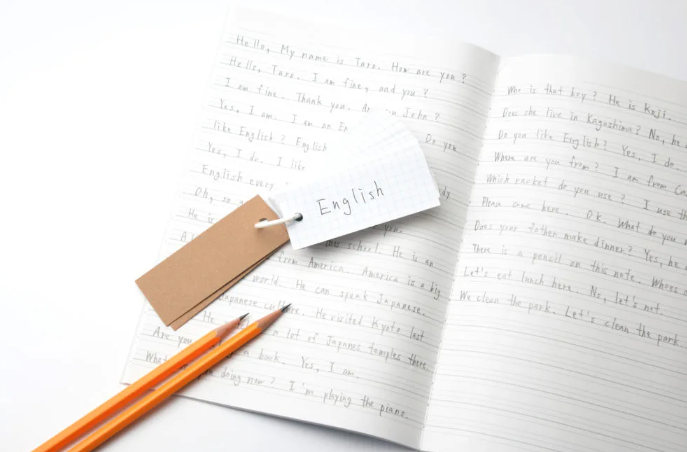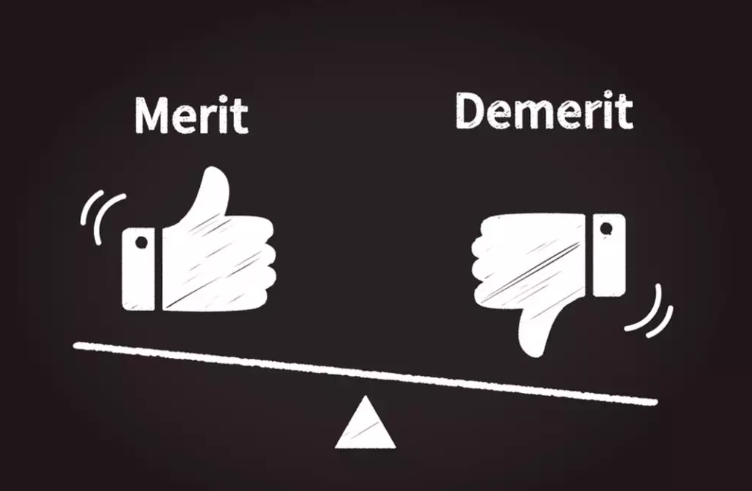ディクテーション(dictation)とは、「流れてくる音声を聞いて、
聞いたとおりに書き起こす」学習法です。
英語学習においては、リスニング力向上のための訓練として取り入れられています。
英語学習者の方で、ディクテーションについて詳しく知らない方や、
リスニングが苦手で悩んでいる方は、ぜひ記事を最後までチェックしてみてください。
今回は、ディクテーションを使って英語能力を格段と向上させる方法を解説します。
1.ディクテーションとは?
2.ディクテーションのメリット
3.ディクテーションの正しいやり方
1.ディクテーションとは?
ディクテーションは聞こえた音を一語ずつ書き留めていく作業なので、
集中して音声を聞かないときちんと聞き取れずうまくいきません。
高い集中力を保つことができるという点で、
ディクテーションは英語学習に効果的なのです。
2.ディクテーションのメリット
ディクテーションのメリットは以下の3つです。
● 聞き取れない単語・熟語がピンポイントで分かる
● 聞き取れない原因が分かる
● リスニング力がアップする
(IELTSのリスニングでは、Part1とPart4で、聞こえてきた単語をそのまま
抜き出すディクテーションに近い問題が必ず出題されます。)
● ライティング力がアップする (文法、スペルミスが改善されます)
聞き取れない単語・熟語がピンポイントで分かる
ディクテーションを行えば、聞き取れない単語や熟語がピンポイントで分かるようになります。
聞き取れない単語が分かったら、該当箇所を何度も聞いたり、
スピードをゆっくりにして聞くなどして、聞き取れるようになるまで何度も聞きましょう。
聞き取れない原因が分かる
ディクテーションを行えば、英語が聞き取れない原因が分かるようになります。
聞き取れない単語や熟語が、見覚えのある単語・熟語だった場合、
単語・熟語の発音を覚えられていない可能性が高いです。
また聞き取れない単語や熟語が、見たこともない単語・熟語だった場合、
単純に語彙力不足である可能性が高いです。
聞き取れない主な原因
- 正しい発音を知らなかった
- 音声変化のルールがわからなかった
- 単語を知らなかった
- 熟語を知らなかった
- 文法的な理解があいまいだったために聞き取れなかった
知らない単語や熟語は大抵の場合、ディクテーションでは書き取れません。
単語帳や熟語帳で学ぶのではなく、ディクテーショントレーニングの中で
知らない語彙を1つずつインプットしていったほうが効率良く勉強できます。
また、教わったことのある英文法も多々出てくると思います。
ディクテーションで出てきたもので文法的にあいまいだったものを
文法書で復習することができます。
ディクテーションを継続的に行っていく中で、
語彙力不足だと分かった場合には、
ディクテーションに加えて語彙力を強化するために
単語帳を使った英語学習を行うべきです。
ディクテーションのデメリット
英語初心者には向いていない
ディクテーションは英語初心者には向いていません。
なぜならディクテーションは、放送される英語音声の8割以上が理解
できる英語レベルでなければ成り立たないからです。
放送される英語音声のほとんどが理解できない状態でディクテーションをしても、
ほとんどの英文を文字に書き起こすことができません。
ほとんどの英文を文字に書き起こすことができなければ、
復習すべき英単語の量が膨大になってしまいます。
1問1問にとてつもない時間がかかり、全く前進できません。
また復習の量が多すぎて手が回らず、英語学習に挫折してしまう方も多く現れるはずです。
ディクテーションをしても、ほとんどの音声を聞き取れないような英語初心者のうちは、
ディクテーションはおすすめできません。
まずは基礎的な英単語や英文法から学習すべきです。
リスニング力がアップする
多くの英語学習者は、リスニング問題を解く時に音声を一度聞き、
復習の時にもう一度聞くだけで、それ以上英語の音声をきくことはありません。
つまり最大でも2回しか同じ英語の音声を聞かないのです。
しかしディクテーションでは、一言一句聞き逃さないように
全力で英語の音声を聞きます。
1回で聞き取るのがベストですが、1回で聞き取れなかった場合は、
繰り返し何度でも英語の音声を聞きます。
よってリスニング力が鍛えられます。
3.ディクテーションの正しいやり方
ではディクテーションのやり方をご説明していきます。
まず初めに教材の選び方ですが、
ディクテーション教材を選ぶ際にまず大事なのは、自分の英語レベルよりも
少しやさしい難易度のものを選ぶこと。
具体的には、9割程度の文章や単語は聞き取れて、わからない部分も
推測しながら理解できる教材がおすすめです。
慣れてきたら、IELTS公式問題集を使います。
特に、ディクテーションの問題が出題される可能性の高い、Part1、Part4の
音声を中心に進めましょう。
ステップ① 英語音声を何度か聞いてみる
いきなりディクテーションを行う前に、2回から3回程度音声をリスニングします。
目的は耳を慣らすためなので、内容の詳細まで理解する必要はなく、
全体の雰囲気がわかれば大丈夫です。
だいたいの内容をつかみ、おおまかな全体像を把握しておいた方が余裕をもって取り組めます。
もちろん、ある程度自信のある方や慣れている方は
いきなり取り組むチャレンジをしても構いません。
この時点で紙とペンを用意しておきます。
ただし最近では、パソコンやスマホアプリを使ったディクテーションも可能です。
パソコンやスマホアプリを使ってディクテーションをする場合は、
キーボードを使って直接文字を入力するので、筆記用具は不要です。
音声はスピーカーよりイヤホンのほうが聞き取りやすいので、
機材の用意も万全にしておきます。
ステップ② 1文ごとに再生し、止めてから書き取る
書き取りは「1文ごと」を単位として取り組んでください。
音声を再生しながら、英文を一言一句紙に書き取っていきます。
スペルは正確に書き、a/anなどの冠詞、ofやinなどの前置詞も
聞き逃さないように注意してください。
文頭からピリオドまでを流したら、そこでいったん停止してから書き取ってください。
大切なことは、「停止するまではペンを動かさないこと」。
ひとまとまりの1文をしっかりと聞いてこそ、意味のあるディクテーションができます。
必ず、「聞きながら書かないこと」を徹底してください。
聞きながら同時にペンを動かしていると、書くことに意識が行ってしまい、
聞き逃す英語がどんどん増え、結果的に余計に時間がかかってしまうことになります。
また、意識が分散することで極端なぶつ切りのディクテーションに
なってしまうのもよくありません。
英語を英語として聞き、「こんな内容を伝える文だな」と理解できた上で
書き取ることを目指しましょう。
1文が長すぎる場合には、コンマや接続詞などいったん意味のまとまりが
区切れるところで切っても構いません。
ステップ③ 限界まで繰り返す
ディクテーションは何度も繰り返してください。
1回目は聞き逃したけれど2回目以降は聞き取れた、ということもあります。
もうこれ以上聞いても分からないという状態になるまで繰り返しましょう。
ステップ④ スクリプトを見て確認する
スクリプト(原稿)を見て、答え合わせをしてください。
聞き取れなかった部分や、聞き取ったつもりでいても実は間違えていた箇所などを確認し、
赤ペンなどで分かりやすくメモしておきましょう。
ステップ⑤ 問題点を探す
④で確認したところについて、何が問題で聞き取りに失敗したのか検証してください。
たとえば「そもそも知らない単語だった」「知っている単語なのに自分が思っていた発音
と違っていた」「発音の似た別の単語と聞き間違えた」「単語同士の音の連結に気づかなかった」など、
いろいろな課題が見えてくるはずです。
さらに音声の問題以外にも、自分が間違えた箇所では、
単語の語法や文構造がおかしいことに気が付くなど、
文法的な学びが得られることもありますので、細かくチェックします
ステップ⑥ 問題点を克服する訓練をする
⑤の検証結果をもとに、自分の問題点を克服する訓練をしてください。
訓練の基本は音読です。単語であれ音の連結であれ、自分で正しい発音
で言えるようになれば必ず聞き取ることができるようになります。
ステップ⑦ 後日、同じ音声で再ディクテーションする
数日から1週間程度開けてからもう一度同じ音声のディクテーションをしてください。
最初に取り組んだときには聞き取ることができなかった箇所を
正確に聞き取ることができるようになっていると確認できれば、
成長の証として大いに喜びましょう。
もし再度同じ失敗をするようであれば、改めて該当箇所を重点的に練習してください。
IELTS リスニング
IELTSのリスニングセクションでは、Part1とPart4で聞こえた単語を書き出す
問題が出題されます。普段からディクテーションでリスニング力を鍛えておくと、
問題が解きやすくなります。




























